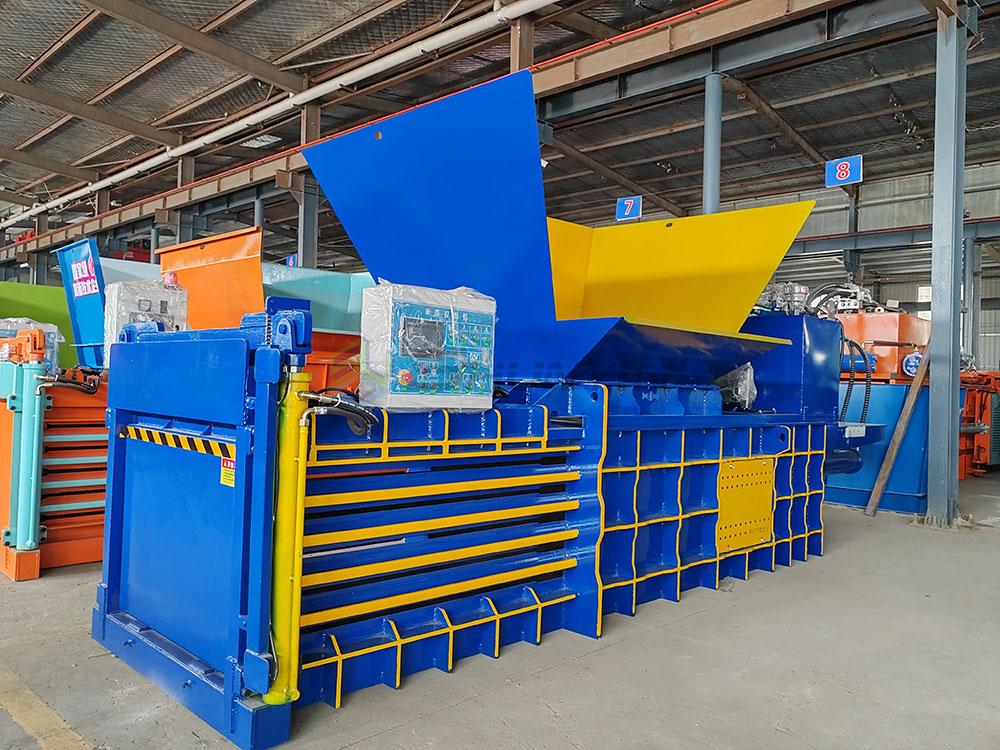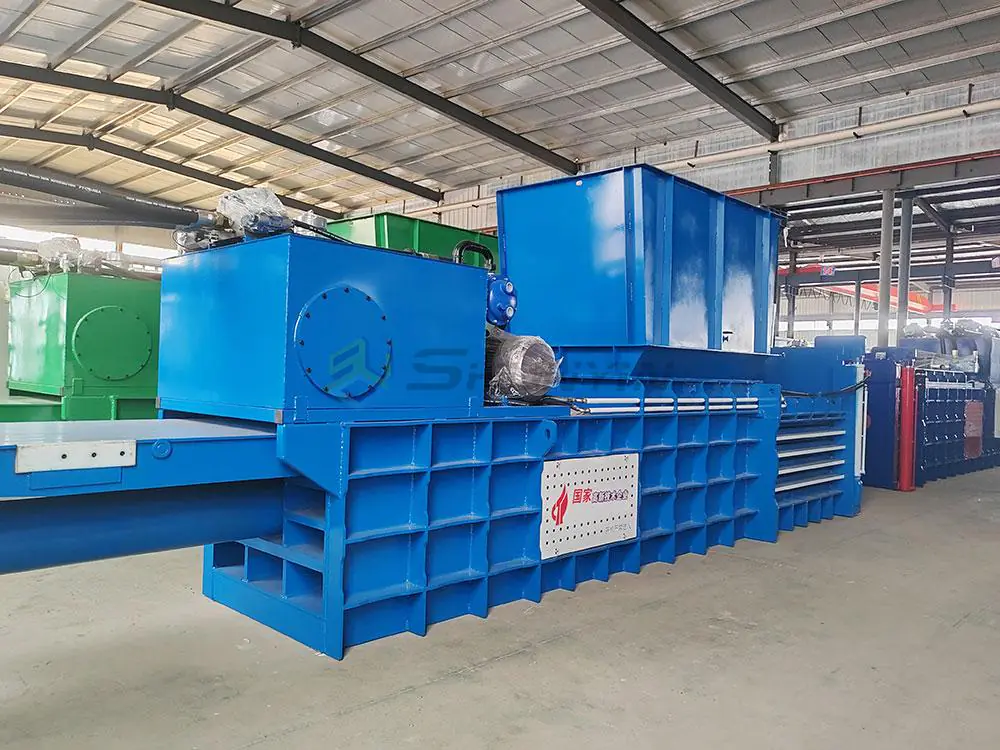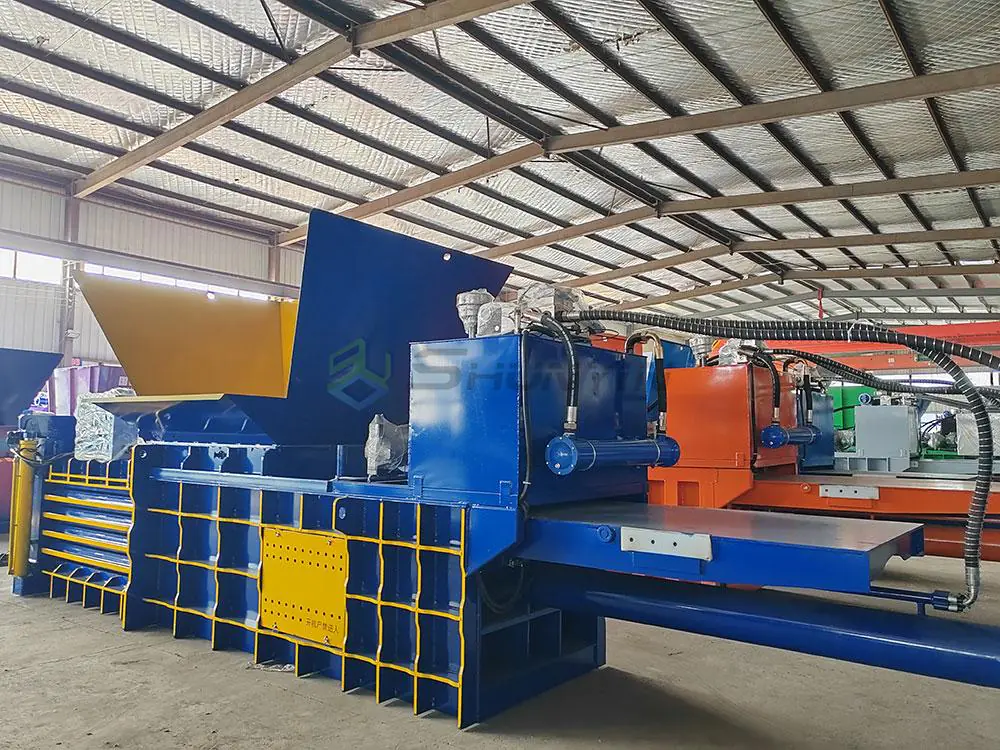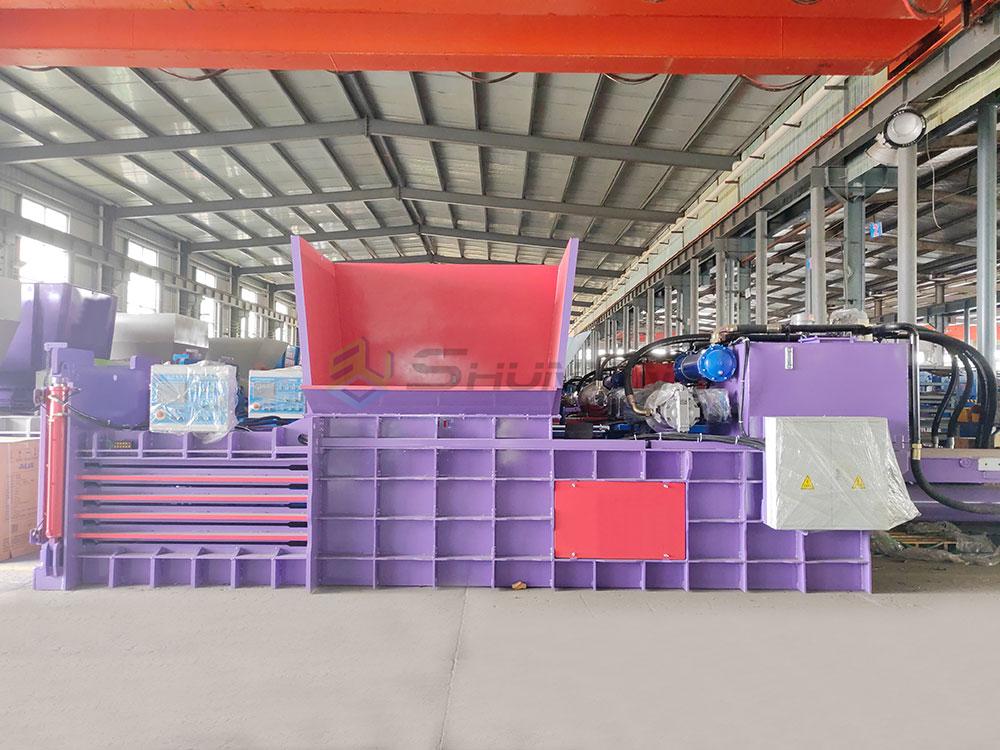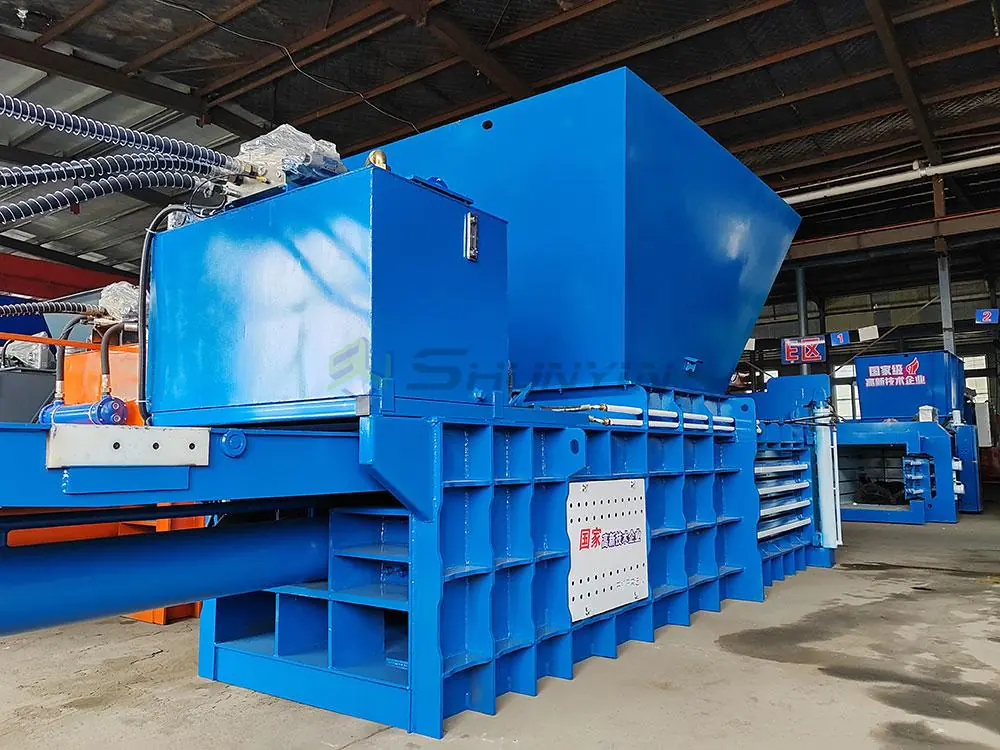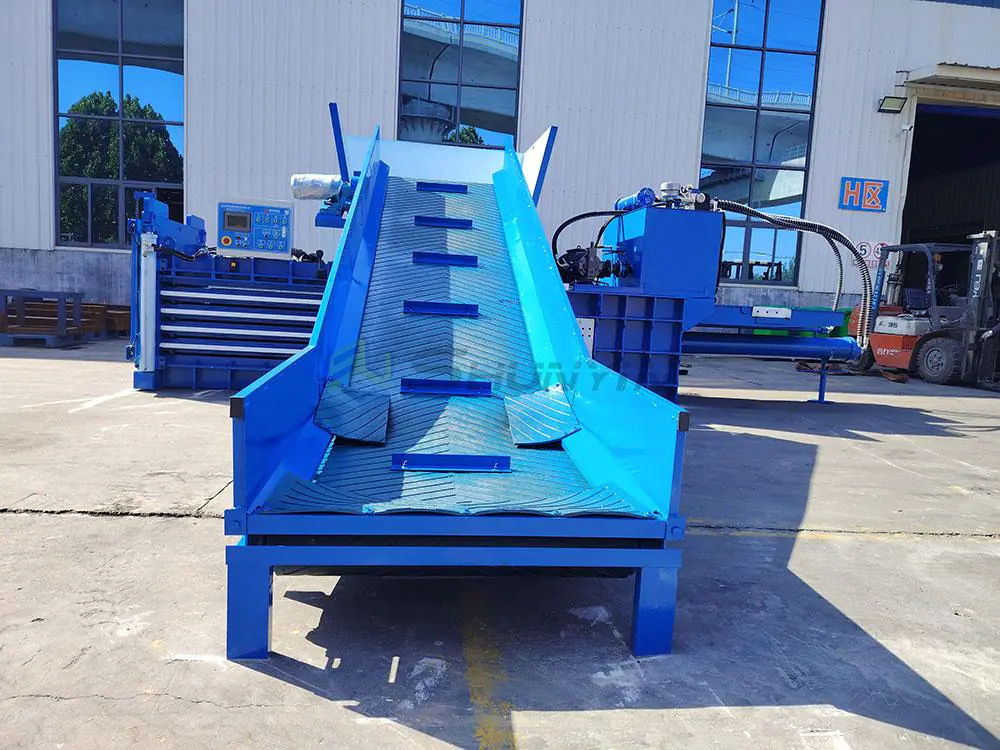
Waste paper balers play a crucial role in helping businesses reduce waste and enhance recycling efforts. They are especially important for eco-friendly businesses that aim to minimize their environmental impact.
Waste paper balers are crucial for eco-friendly businesses because they boost recycling, lower disposal costs, and enhance sustainability efforts. Key reasons include:
- Encourages Recycling – Compresses paper waste into dense, easily transportable bales for efficient recycling.
- Reduces Waste Disposal Costs – Cuts volume by up to 90%, reducing landfill fees and transport expenses.
- Supports Sustainability – Helps businesses meet zero waste goals and lowers their carbon footprint.
- Improves Efficiency – Automates the baling process, saving time, space, and labor.
- Generates Revenue – Baled paper can be sold to recyclers, turning waste into profit.
💡 Waste paper balers help eco-friendly businesses reduce waste, save money, and contribute to environmental sustainability.
In today’s world, where environmental consciousness is a top priority, waste paper balers are key tools for businesses that want to contribute to sustainability while improving their operational efficiency. Let’s dive into why they are so important.
Why is it important to recycle paper waste?
Recycling paper waste is essential because it reduces the amount of waste sent to landfills, conserves natural resources, and lowers energy consumption. Recycling paper also reduces the need to cut down trees, helping preserve forests and promoting a healthier environment. Furthermore, recycling paper helps reduce greenhouse gas emissions and conserves water.
Recycling paper waste is vital for sustainable business practices and plays a major role in reducing the environmental impact of paper production. It helps reduce deforestation, lowers pollution, and conserves valuable resources.

The Environmental Benefits of Recycling Paper
- Conserves Resources: Reduces the need for raw materials like wood and water.
- Reduces Pollution: Lessens air and water pollution associated with paper production.
- Minimizes Waste: Reduces the amount of paper waste that ends up in landfills.
Table: Benefits of Recycling Paper Waste
| Benefit | Description |
|---|---|
| Conserves Resources | Reduces the need for natural resources like wood and water |
| Reduces Pollution | Lowers emissions and pollutants from paper production |
| Minimizes Waste | Reduces landfill usage by recycling paper |
How does paper waste affect the environment?
Paper waste contributes significantly to landfill waste, which in turn leads to environmental problems like soil and water contamination. When paper waste decomposes in landfills, it releases methane, a potent greenhouse gas. Additionally, the production of paper from virgin wood contributes to deforestation and habitat destruction, further harming ecosystems.
The environmental impact of paper waste is far-reaching, from contributing to landfills to increasing deforestation and pollution. Recycling paper helps alleviate these issues by turning waste into a valuable resource, reducing the need for new raw materials.

The Environmental Impact of Paper Waste
- Landfill Contribution: Paper waste takes up space in landfills and contributes to methane emissions.
- Deforestation: Paper production from virgin wood leads to deforestation and habitat loss.
- Water Pollution: Paper mills release pollutants into rivers and streams.
Table: Environmental Impact of Paper Waste
| Issue | Description |
|---|---|
| Landfill Contribution | Paper waste takes up valuable space in landfills |
| Deforestation | Virgin wood paper production leads to deforestation |
| Water Pollution | Paper mills release harmful pollutants into water sources |
Why is eco-friendly paper good?
Eco-friendly paper is made from recycled materials or sustainably sourced wood, reducing the environmental impact of paper production. Unlike traditional paper, eco-friendly paper doesn’t contribute to deforestation and uses fewer resources during its manufacturing process. It also often requires less energy and water to produce, making it a more sustainable choice for businesses.
Eco-friendly paper promotes sustainability by reducing the need for virgin resources, lowering emissions, and supporting responsible forestry practices. It’s an important step for businesses aiming to reduce their carbon footprint and promote green initiatives.

The Benefits of Eco-Friendly Paper
- Reduces Deforestation: Made from recycled or sustainably sourced wood, reducing pressure on forests.
- Energy Efficient: Requires less energy to produce compared to traditional paper.
- Supports Sustainability: Helps businesses meet their sustainability goals by reducing waste and pollution.
Table: Advantages of Eco-Friendly Paper
| Benefit | Description |
|---|---|
| Reduces Deforestation | Made from recycled materials or sustainable wood sources |
| Energy Efficient | Uses less energy in production, reducing carbon footprint |
| Supports Sustainability | Promotes responsible production and reduces environmental impact |
What are the advantages of baling cardboard?
Baling cardboard provides several benefits to businesses. It significantly reduces the space needed to store waste cardboard, which is essential for companies with limited storage capacity. Baled cardboard is easier to handle and transport, reducing transportation costs. Additionally, baling cardboard supports recycling by ensuring it is compacted and ready for processing at recycling facilities.
Baling cardboard offers efficiency, cost savings, and environmental benefits, making it an essential part of an eco-friendly business’s waste management strategy. It also promotes responsible recycling practices, helping reduce the environmental impact of cardboard waste.

Key Advantages of Baling Cardboard
- Space Savings: Bales take up less storage space compared to loose cardboard.
- Cost Savings: Reduces transportation and handling costs by compacting materials.
- Improved Recycling: Prepares cardboard for efficient recycling by compacting it into uniform bales.
Table: Benefits of Baling Cardboard
| Benefit | Description |
|---|---|
| Space Savings | Bales take up significantly less space than loose cardboard |
| Cost Savings | Reduces transportation and handling costs |
| Improved Recycling | Prepares cardboard for easier recycling |
Conclusion
Waste paper balers are crucial for eco-friendly businesses by improving recycling efficiency, reducing storage space, and promoting sustainable practices. Investing in a baler is an important step toward minimizing environmental impact and supporting green initiatives.


